Jannatul Ferdous JerinHello, I am Jannatul Ferdous Jerin. I am currently pursuing B.Sc. in the Department of Meteorology, University of Dhaka. As an Undergraduate Research Assistant under Aishia Fyruz Aishi, I am studying the dynamics and prediction of subseasonal heatwaves, exploring how climate variability influences extreme weather events. In addition, I am developing my expertise in climate modeling through two projects: one assessing the WRF model's ability to simulate lightning under the guidance of Pappu Paul, and another evaluating the BATS and CLM land surface schemes in RegCM5 for simulating temperature patterns over Bangladesh, supervised by Dr. Md. Nazmul Ahsan. These experiences allow me to combine observational analysis with numerical modeling to better understand climate processes in the region. When I'm not immersed in a project, I enjoy balancing relaxation with engagement. You can often find me unwinding with music, films, series, or a good book, as well as spending quality time with friends. I also value staying actively involved in my academic community by contributing to and participating in the seminars and programs organized by my department. I am currently seeking opportunities to pursue a PhD starting in Fall 2026. Connect with me! |
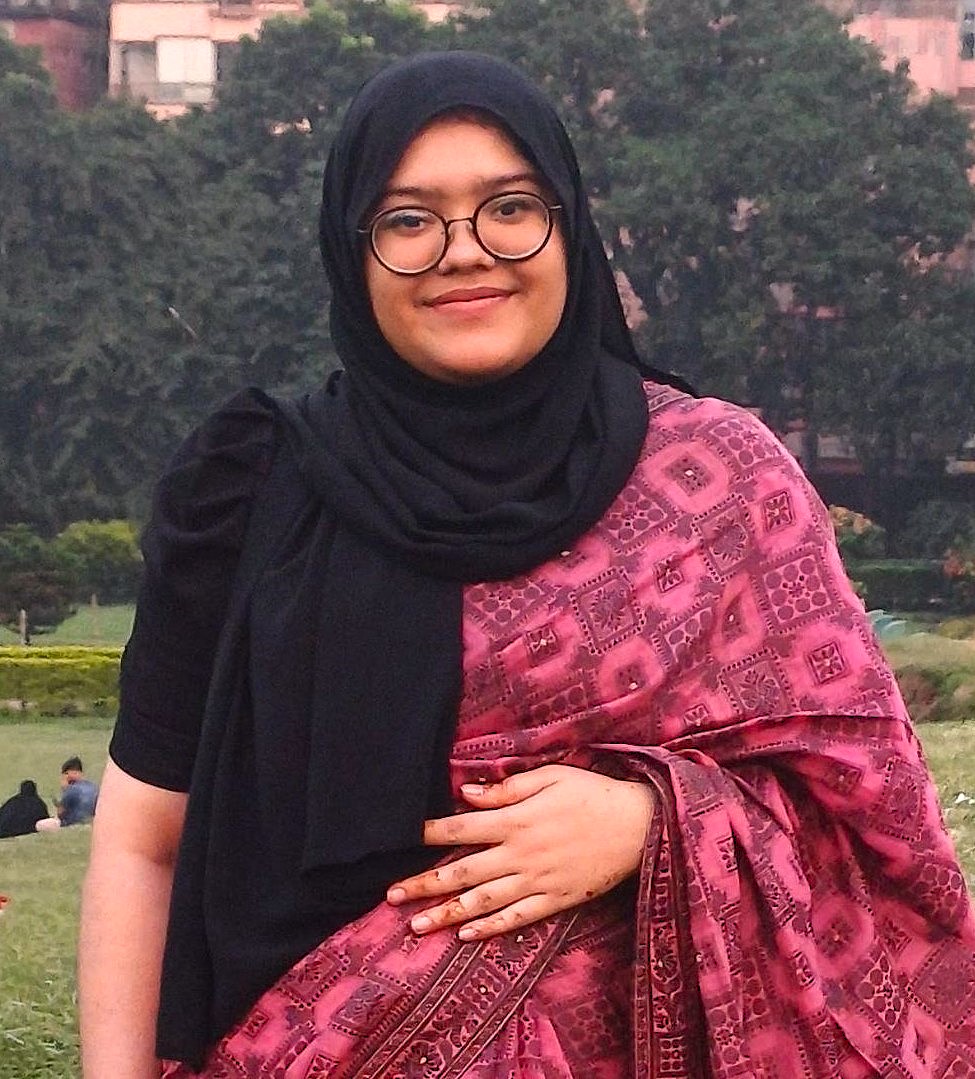
|
ResearchI'm interested in research related to Meterology, Heatwave, NWP Modeling, Machine Learning. |
Ongoing |
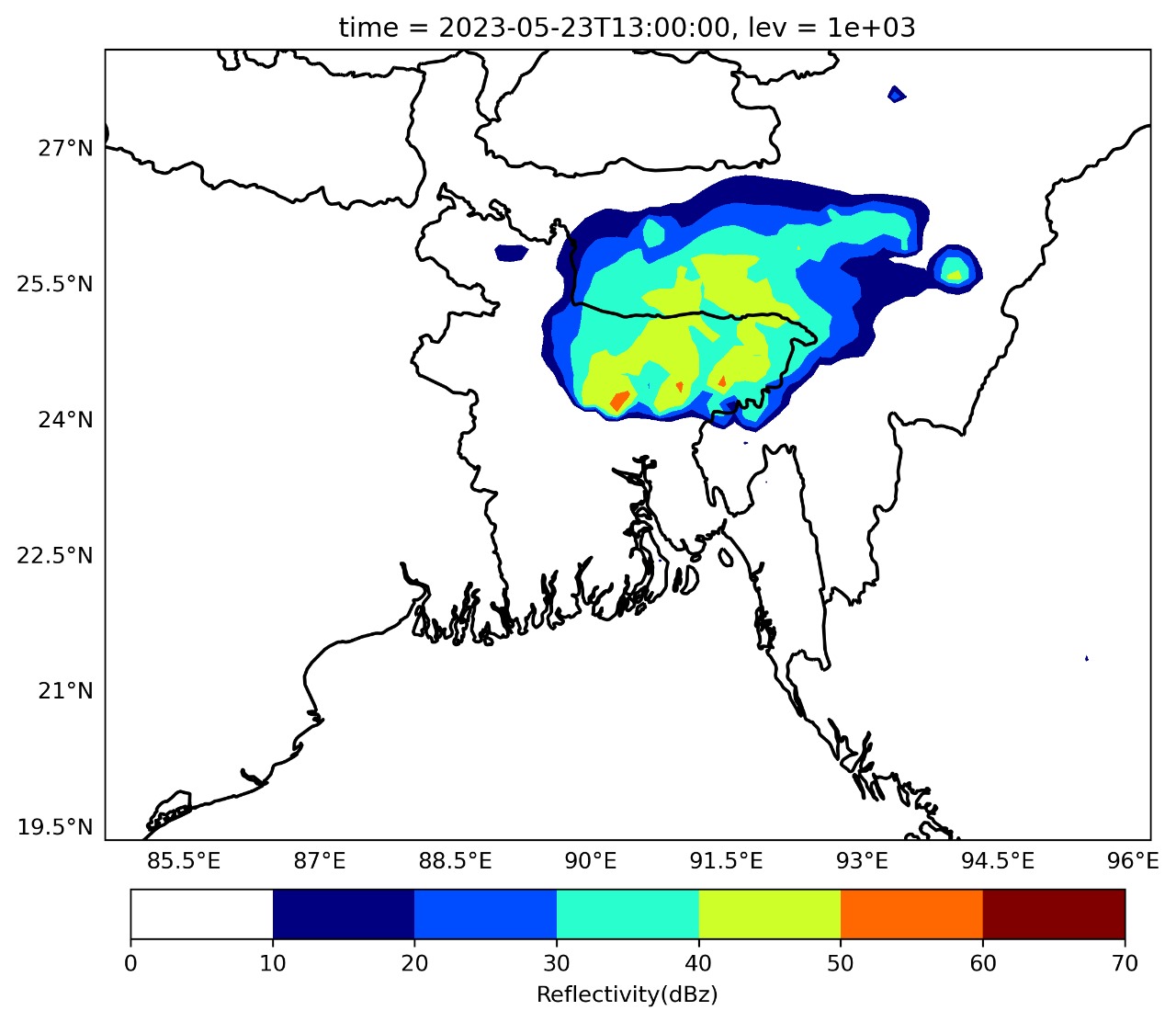
|
An Integrated Approach to Thunderstorm and Lightning Prediction in Bangladesh Using CAPE and Electric PotentialJannatul Ferdous Jerin, Pappu Paul This research aims to improve severe weather warnings in Bangladesh by using the WRF model to simulate five historical thunderstorm events, focusing on the integrated role of atmospheric instability (CAPE) and charge separation (electric potential). The simulations established a strong predictive relationship between these factors, confirming their combined utility for more accurate thunderstorm and lightning forecasting. Currently working on the manuscript for publication. |
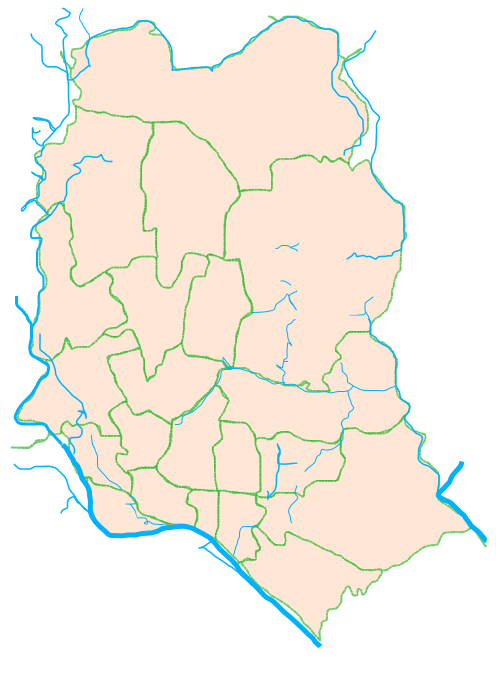
|
{Exploring Subseasonal Heatwave Predictability in Dhaka using Prompt-Guided Deep Learning FrameworkThis research investigates the predictability of subseasonal heatwaves in Dhaka by applying a deep learning framework designed for complex time series analysis. This study evaluates the framework’s ability to integrate multi-scale climate data, combining local atmospheric variables with broader, large-scale atmospheric patterns. The methodology utilizes a prompt-based feature extraction technique, leveraging the representational power of Large Language Models to interpret the numerical climate data. The primary objective is to assess the performance of this framework in extending the skillful forecast horizon for extreme heat events, thereby evaluating its potential as a tool for more effective and timely early warning systems. |
ProjectsIncluded here are projects completed as part of coursework, as well as independent personal endeavors. |
Course Projects |
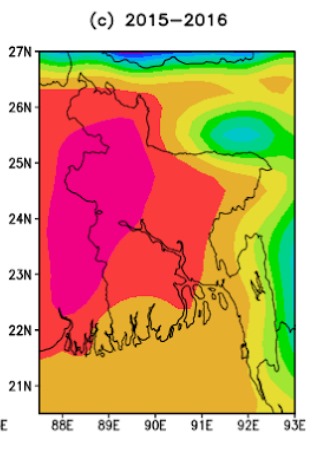
|
Evaluation of BATS and CLM Land Surface Schemes in RegCM5 for Temperature Simulation over BangladeshMetLb 410 (Weather & Climate Modelling) [slides] [report] Evaluating the performance of the BATS and CLM land surface schemes in the RegCM5 regional climate model for simulating temperature over Bangladesh. Model outputs are compared with CRU observational data to assess seasonal, monthly, and annual temperature patterns. The study aims to identify how well each land surface scheme captures temporal variability and long-term trends, providing insights into their suitability for climate studies in the South Asian monsoon region. |
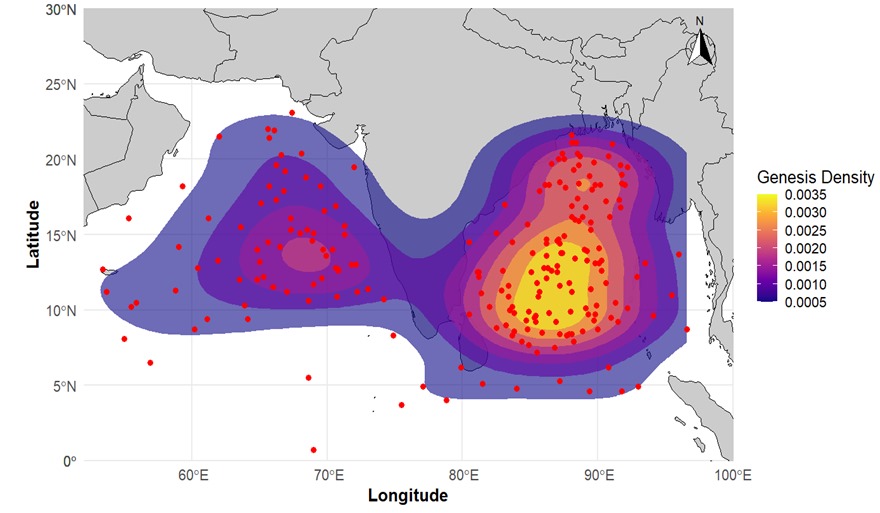
|
Climatological Analysis Of Tropical Cyclones Over The North Indian Ocean: 1982–2023MetTh 407 (Climatology and Climate Modeling) [slides] Analyzing the climatological characteristics of tropical cyclones over the North Indian Ocean from 1982 to 2023. The analysis examines cyclone genesis location distribution, frequency patterns on annual, seasonal, monthly, and decadal scales, along with cyclone duration and landfall locations. By capturing both spatial and temporal variability, the study highlights long-term trends and shifts in tropical cyclone behavior in this region. |
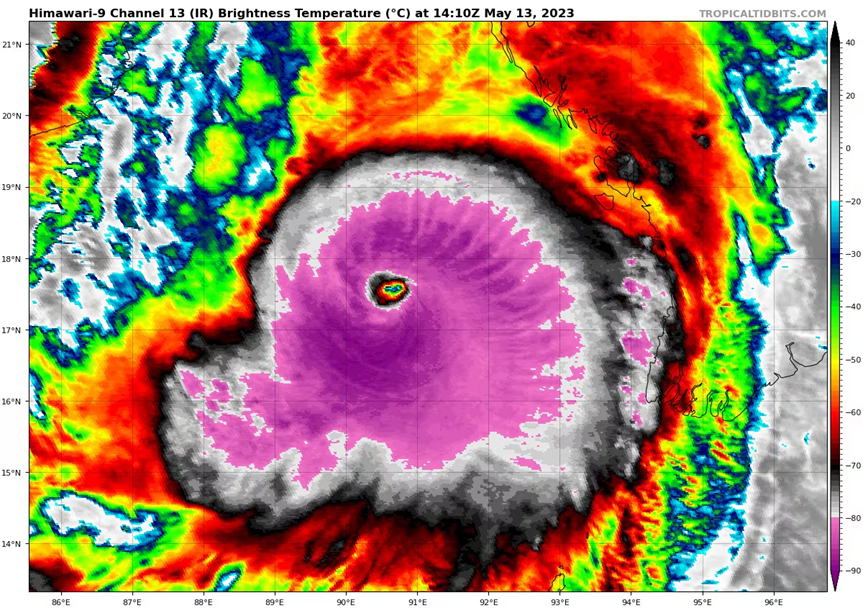
|
Simulation Of Structure, Intensity, Landfall And Track of Tropical Cyclone “Mocha” Using NWP ModelsMetLb 406 (Applications of NWP Modeling) [slides] [report] Simulated Tropical Cyclone Mocha using the WRF-ARW model, and analyzed its structure, intensity, track, and landfall. Key atmospheric parameters like wind speed, pressure, temperature, and vertical wind shear are examined to understand intensification processes. Model outputs for track, central pressure, and wind speed are validated against observations, providing insights into the model’s forecasting applicability for high-impact cyclones. |
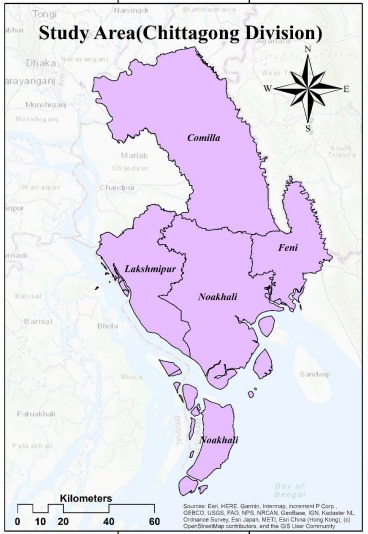
|
Economic And Hydrometeorological Aspects Of The August Flood: Assessing Vulnerability, Impact, And Community PreparednessMetV 213 (Field Experiment + Vivavoce) [report] Conducted a field-based research study on the August 2024 flash flood, focusing on socioeconomic vulnerabilities, hydrometeorological triggers, and community preparedness and response. Designed the survey questionnaire and carried out household interviews with affected individuals and families to guide systematic data collection. Applied both qualitative and quantitative methods to analyze patterns of exposure, adaptive capacity, and the overall impacts of the disaster. |
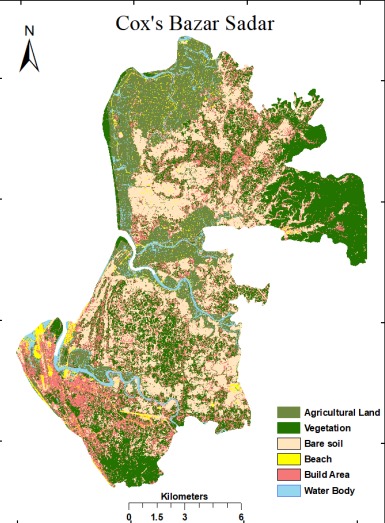
|
Finding The Common Ground Between Forecast Dissemination And Interpretation: A Case Study On The Lessons Learned From The Cyclone ‘Mocha’MetV 111 (Field Experiment + Vivavoce) Conducted a case study on Tropical Cyclone Mocha to explore the common ground between forecast dissemination and interpretation. The research involved surveying people who were most affected by the cyclone to understand how forecasts were received, interpreted, and acted upon at the community level. The study highlighted gaps between scientific communication and local understanding, revealing key lessons for improving forecast dissemination, strengthening public awareness, and enhancing community preparedness. |
EducationBelow is a concise summary of my academic background to date. |
|
■ Bachelor of Science in Meterology [2019–2024]
■ Higher Secondary School Certificate (HSC) [2018–2020]
■ Secondary School Certificate (SSC) [2008–2018] |
Work ExperienceI am committed to pursuing a research-driven career, whether in academia or industry. Below are some highlights of my professional experiences so far. |
|
■ Undergraduate Research Assistant [Apr 2025 – Present] |
Awards and ScholarshipsOver the years, I’ve been honored with a few recognitions—made possible by the invaluable support of mentors and peers who have greatly influenced my growth. |
■ Awards
|
LeadershipI dedicate part of my time to serving communities. Here are a few selected contributions. |
|
■ Student Coordinator [Mar 2025 – Present]
■Campus Ambassador [Jul 2024 – Present]
■ Campus Ambassador [Aug – Present]
■ Volunteer [Mar 2025]
■ Volunteer [Oct 2022]
■ Volunteer [May 2022] |
|
|



